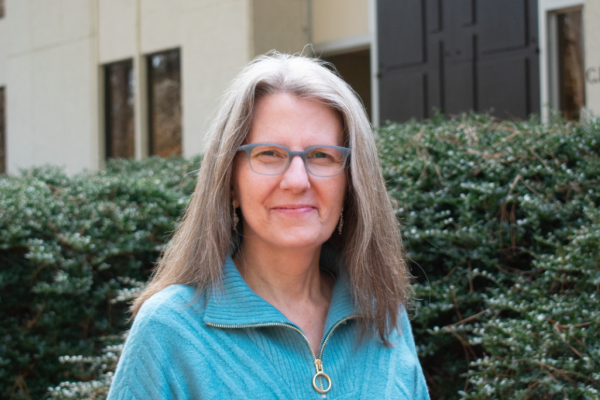
FPG Profile: Gisele Crawford
Gisele Crawford, MAA, is a research specialist at the UNC Frank Porter Graham Child Development Institute (FPG).
Crawford has worked on numerous studies of young children and their environments and experiences, including large-scale studies of public pre-kindergarten in the United States. She has published articles and book chapters about serving diverse populations of children in early education settings and is a contributing author to FirstSchool: Transforming pre-K-3rd Grade for African American, Latino, and Low-Income Children.
As part of our FPG profile series, we recently spoke with Crawford to learn more about her work at FPG. Here’s what she had to say.
Tell us a bit about your professional journey―and what brought you to FPG?
After earning a BA in anthropology at Rutgers University, I taught English in Taiwan and also worked at an American preschool there. I then earned a Master of Applied Anthropology at University of Maryland, College Park, with a focus on women and economic development. I spent the next two years at the North Carolina Justice Center. From there, I came to FPG to work on the revision of the Early Childhood Environment Rating Scale. I stayed on to work for Dick Clifford on various projects including studies of state-funded pre-K and the FirstSchool initiative.
What do you do at FPG—tell us about the projects you're currently working on.
For the past several years I’ve been part of a team led by Noreen Yazejian, Donna Bryant, and Iheoma Iruka. We are the National Evaluation Partner for the Educare Network, a group of high-quality early care and education programs across the country. Along with project teammates and colleagues in FPG’s data management and analysis core, I support the local evaluation partners at each Educare school to collect, share, and utilize data.
What do you like most about your job?
The local evaluation partners are an amazing group of researchers who work closely with some of the most effective early childhood programs serving historically underserved communities. They are doing great things in partnership with educators and families in a variety of local contexts, and it’s a privilege to collaborate with them and bear witness to the innovative ways people work together to create positive change.
What do you find most challenging?
There’s always more we can be doing to support our local evaluators, and more we can learn about the children and educators at the Educare schools. But the fact is, the most challenging thing about this work is the sense that things just do not have to be this hard for working families in the U.S. I constantly confront the reality that different policy choices could be made that would allow more families to prosper and thrive.
How does your work further the mission of FPG?
This project has produced high quality research findings for 18 years, on topics deeply relevant to early care and education providers and families of young children. It also positions us to be of service to colleagues at partner institutions across the country.
What do you hope to have accomplished five years from now?
I hope to have handed off a well-oiled machine to my teammates who will carry on after I retire! Before I go, I’d like to have played a role in Educare researchers better utilizing qualitative data.
Is there anything else you would like people to know about working at FPG?
I’m grateful for the ways all PIs at FPG have made space for me as a PhD-free person to participate in all aspects of the work, pushing me to collaborate on publications, provide technical assistance, contribute to new proposals, and on and on. FPG researchers do a good job modeling research-practice partnerships.